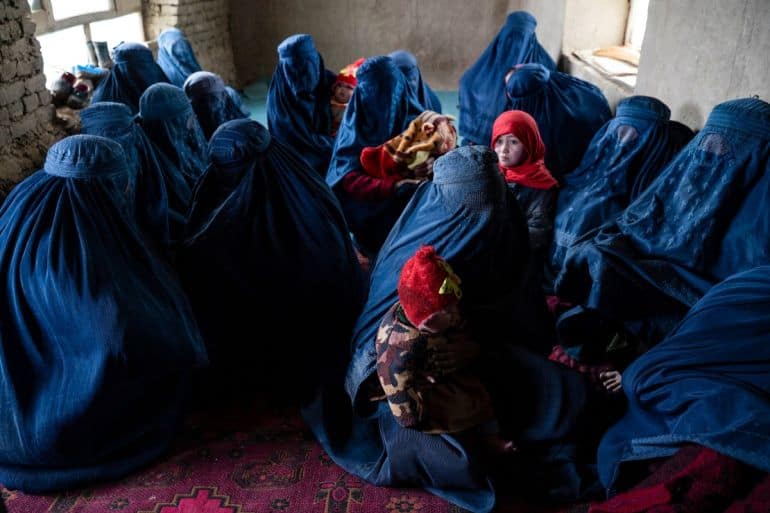ICC seeks arrest of Taliban leaders over alleged persecution of women
Judges say Taliban officials have ‘severely deprived’ girls and women of rights including education.

Published On 8 Jul 20258 Jul 2025
Judges at the International Criminal Court (ICC) have issued arrest warrants for two top Taliban leaders on charges of persecuting women and girls.
ICC judges on Tuesday said there were “reasonable grounds” to suspect Taliban Supreme Leader Hibatullah Akhundzada and chief justice Abdul Hakim Haqqani of committing gender-based persecution.
Recommended Stories
list of 4 items
Why Afghan women are leaving Afghanistan
end of list
“While the Taliban have imposed certain rules and prohibitions on the population as a whole, they have specifically targeted girls and women by reason of their gender, depriving them of fundamental rights and freedoms,” the court said in a statement.
The Taliban had “severely deprived” girls and women of the rights to education, privacy and family life and the freedoms of movement, expression, thought, conscience and religion, ICC judges said.
“In addition, other persons were targeted because certain expressions of sexuality and/or gender identity were regarded as inconsistent with the Taliban’s policy on gender.”
The court said the alleged crimes had been committed between August 15, 2021, when the Taliban seized power, and continued until at least January 20, 2025.
The ICC, based in The Hague, was set up to rule on the world’s worst crimes, such as war crimes and crimes against humanity. It has no police force of its own and relies on member states to carry out its arrest warrants – with mixed results.
In theory, this means anyone subject to an ICC arrest warrant cannot travel to a member state for fear of being detained.
Last year, the United Nations accused the Taliban government of barring at least 1.4 million girls of their right to an education during their time in power.
Advertisement
Taking into account the number of girls not going to school before the group came to power in August 2021, the UN said 80 percent of Afghan school-age girls – a total of 2.5 million – were being denied their right to an education.
